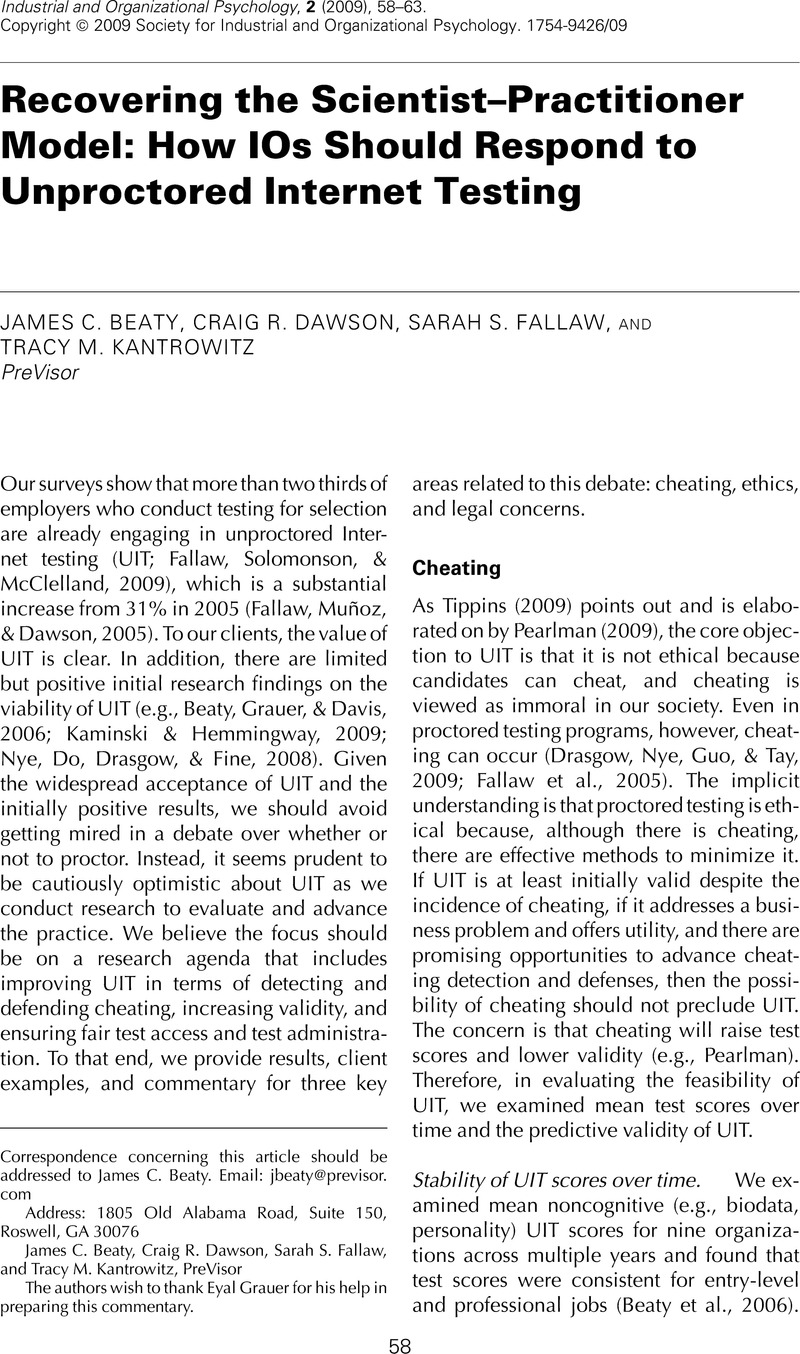Crossref Citations
This article has been cited by the following publications. This list is generated based on data provided by Crossref.
Tippins, Nancy T.
2009.
Where Is the Unproctored Internet Testing Train Headed Now?.
Industrial and Organizational Psychology,
Vol. 2,
Issue. 1,
p.
69.
Guo, Jing
and
Drasgow, Fritz
2010.
Identifying Cheating on Unproctored Internet Tests: The Z‐test and the likelihood ratio test.
International Journal of Selection and Assessment,
Vol. 18,
Issue. 4,
p.
351.
Makransky, Guido
and
Glas, Cees. A. W.
2011.
Unproctored Internet Test Verification.
Organizational Research Methods,
Vol. 14,
Issue. 4,
p.
608.
Beaty, James C.
Nye, Christopher D.
Borneman, Matthew J.
Kantrowitz, Tracy M.
Drasgow, Fritz
and
Grauer, Eyal
2011.
Proctored Versus Unproctored Internet Tests: Are unproctored noncognitive tests as predictive of job performance?.
International Journal of Selection and Assessment,
Vol. 19,
Issue. 1,
p.
1.
Fetzer, Mike
and
Kantrowitz, Tracy
2011.
Technology‐Enhanced Assessment of Talent.
p.
380.
Kantrowitz, Tracy M.
Dawson, Craig R.
and
Fetzer, Michael S.
2011.
Computer Adaptive Testing (CAT): A Faster, Smarter, and More Secure Approach to Pre-Employment Testing.
Journal of Business and Psychology,
Vol. 26,
Issue. 2,
p.
227.
Bruk-Lee, Valentina
Drew, Erica N.
and
Hawkes, Ben
2013.
Simulations for Personnel Selection.
p.
43.
Kantrowitz, Tracy M.
and
Dainis, Amanda M.
2014.
How Secure are Unproctored Pre-Employment Tests? Analysis of Inconsistent Test Scores.
Journal of Business and Psychology,
Vol. 29,
Issue. 4,
p.
605.
Bruk‐Lee, Valentina
Lanz, Julie
Drew, Erica N.
Coughlin, Chris
Levine, Pamela
Tuzinski, Kathy
and
Wrenn, Kimberly
2016.
Examining Applicant Reactions to Different Media Types in Character‐based Simulations for Employee Selection.
International Journal of Selection and Assessment,
Vol. 24,
Issue. 1,
p.
77.
Kantrowitz, Tracy M.
Grelle, Darrin M.
and
Lin, Yin
2019.
The Cambridge Handbook of Technology and Employee Behavior.
p.
131.





